Confiscation of russian assets in Britain: between politics and law
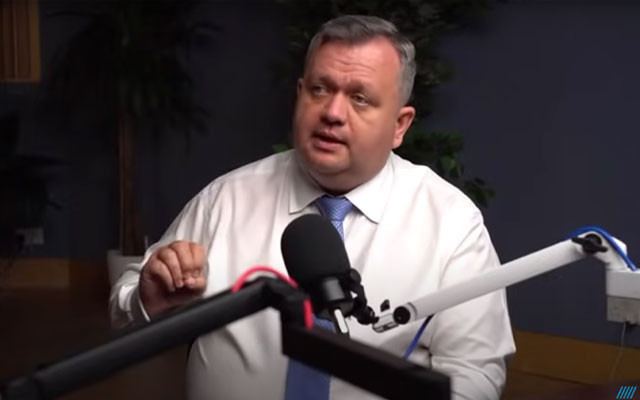
The issue of using frozen russian assets in the UK remains open. The political will for this exists, but the mechanism for confiscation requires a clear legal framework agreed at the international level.
The topic of confiscating russian assets for the benefit of Ukraine was explored by journalists from the Pryamy TV channel during an interview with the representative of the UNBA in Scotland, the United Kingdom of Great Britain and Northern Ireland Oleksandr Chernykh. He explained the current stage of legal work on this issue and why, even with the political will, it has not yet been possible to convert the frozen billions into real compensation.
According to O. Chernykh, the issue of compensation for losses from russian assets cannot be resolved quickly. The mechanism has not yet been created — and not because of a lack of desire. After all, such a decision requires not only political will, which everyone has already demonstrated, but above all a legal model that complies with international law. There has never been such a precedent in the modern world.
The main obstacle is the difference in legal systems and national principles of property protection. In the UK, for example, private property rights have been sacrosanct since the Magna Carta of 1215. Therefore, assets can only be seized by court order, not by political decree. That is why the governments of democratic states are looking for a way to use Russian funds legally, without destroying their own legal traditions.
Responding to a question about the possibility of directing fines imposed on British companies for violating sanctions to aid Ukraine, O. Chernykh emphasized that these are ordinary administrative penalties that go to the United Kingdom's state budget. «This fine is the same sanction as, for example, running a red light or not paying taxes. These funds go to the British budget. They are not mixed, there is no separate body that collects these fines for Ukraine. This is a punishment for those who have not complied with the requirements of the law and a lesson for others», - the advocate explained.
He also clarified that humanitarian aid to Ukrainians in Britain — housing, social benefits — is financed from a different budget, which has the status of a voluntary commitment by the government, not an obligation to Ukraine.
The journalist recalled another possible source: according to the government portal, Britain has frozen about 25 billion Russian assets. «We recently saw the UK government transfer 1 billion to Ukraine in aid from the income received, - the advocate confirmed. - That is, russian assets are not being used directly at the moment. The profits are being used». Any unilateral use of these assets could be seen as interfering with another country's sovereignty, which is against international law.
During the conversation, special attention was drawn to the London mayor's initiative to confiscate the real estate of russian oligarchs and transfer it to Ukrainians who have fled the war. According to British media estimates, the value of such property reaches £1 billion.
O. Chernykh called this initiative «a political statement that reflects his commitment to Ukraine». However, implementation is possible. «This mechanism is entirely realistic. The question is that the London City Council must adopt and work out this decision and agree it with the Government of the United Kingdom, - explained the representative of the UNBA. - Britain is a country of law and justice. If one decision is made, it must be applied in other similar situations».
According to the expert, there are still prospects for the confiscation of assets obtained by criminal means. There have already been such precedents in Britain, but the process is complex and requires clear evidence of the illegal origin of the funds.
Popular news
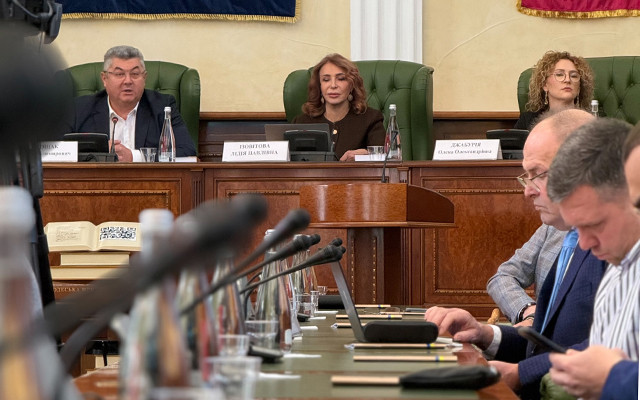
Guarantees of the practice of law
L. Izovitova: today advocacy maintains its independence and fights for guarantees for the profession
The Ukrainian advocacy remains an independent, constitutionally recognized institution of justice, which, in the conditions of war, has not only retained its subjectivity, but also consistently fights for guarantees to protect the profession.
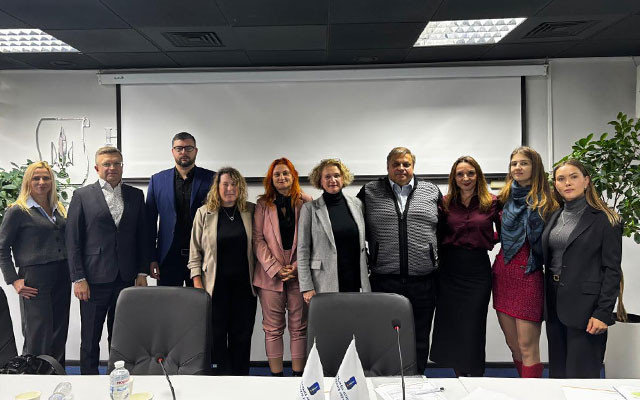
Discussion
Urban Planning Code: what should the new rules for rebuilding Ukraine be?
Does Ukraine need separate codification in the field of urban planning, which model of law to choose, and how to ensure a balance between the interests of the state, communities, businesses, and citizens in the context of post-war reconstruction?
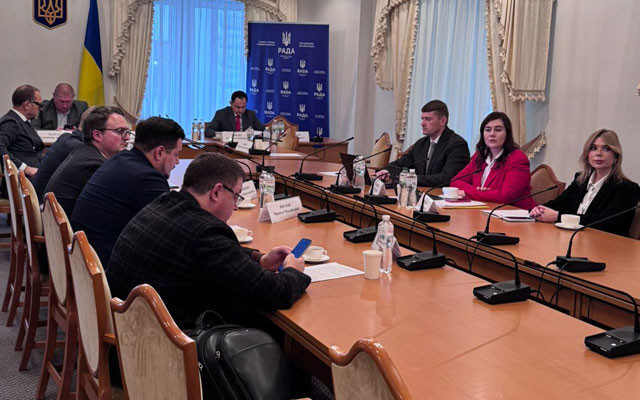
Guarantees of the practice of law
The Verkhovna Rada took another step towards ratifying the Convention on the protection of the profession of advocate
On November 5, the Verkhovna Rada held a working meeting dedicated to the translation of the Council of Europe Convention on the protection of the profession of advocate for its subsequent signing and ratification. The issue was initiated by the Ministry of Foreign Affairs, which drew attention to the key term «lawyer» in the international treaty.
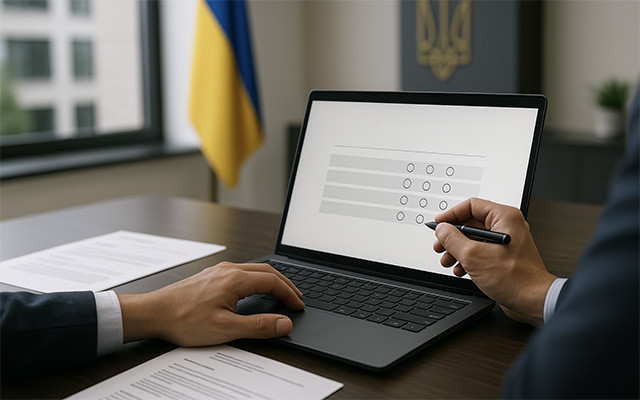
Interaction
NACB is looking for corruption risks in its activities. Advocates are asked to help
The National Anti-Corruption Bureau of Ukraine has launched a survey aimed at gathering information to identify corruption risks in the activities of the National Bureau and prepare an Anti-Corruption Program for 2026–2028.
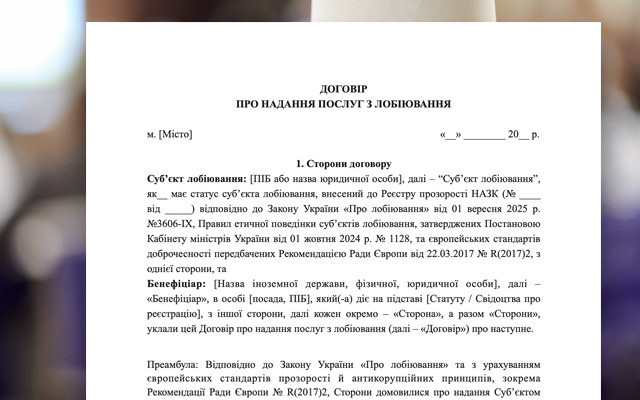
Interaction
Agreement on the provision of lobbying services: a template for advocates has been developed by the UNBA
The Ukrainian National Bar Association has prepared a model agreement for the provision of lobbying services that complies with the requirements of the relevant law and takes into account the specific features of such activities carried out by persons providing legal assistance.
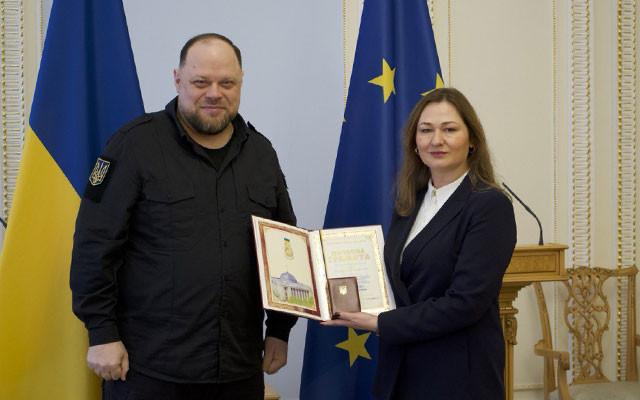
Greetings
Nana Bakayanova awarded with the Certificate of honor of the Verkhovna Rada of Ukraine
Nana Bakayanova, head of the Department of judicial, law enforcement and advocacy organizations at the Odessa Law Academy and secretary of the disciplinary chamber of the Odessa Region Qualification and Disciplinary Commission, received a Certificate of honor from the Verkhovna Rada of Ukraine.
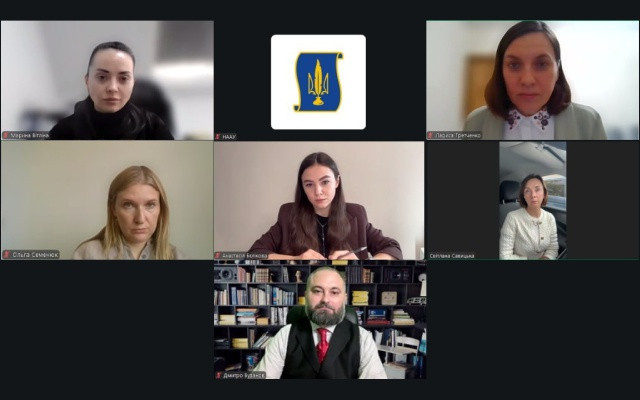
Discussion
Law and feelings: advocates explore contemporary challenges in family law
Marriage and divorce are not only legal procedures, but also social phenomena that require a responsible approach. The UNBA Committee on family law organized and held a professional discussion on the topic «Conscious» marriage and «prudent» divorce: challenges, risks, consequences».

Practice of law
BCU strengthens its position on the right of advocate to prioritize cases
In legal practice, it is not uncommon for court hearings in different cases to be scheduled at the same time. This raises the question: which case should the advocate attend first, and can the court interfere with this decision?
Publications

Censor.net Protecting advocates – protecting justice: addressing concerns about the new law

Ihor Kolesnykov A BRIEF SUMMARY REGARDING THE APPLICATION OF THE ORDER ON EXTENDED CONFISCATION IN LATVIA REGARDING FINANCIAL ASSETS OF…

Valentyn Gvozdiy WORKING IN A WAR ZONE

Lydia Izovitova Formula of perfection

Sergiy Vylkov Our judicial system is so built that courts do not trust advocates

Iryna Vasylyk Advocacy in the proclamation of Independence of Ukraine

Oleksandr DULSKY When we cross the border of the Supreme Anti-Corruption Court, we get into another department of the National Anti-Corruption…

Vadym Krasnyk The UNBA will work, and all obstacles and restrictions are only temporary inconveniences
